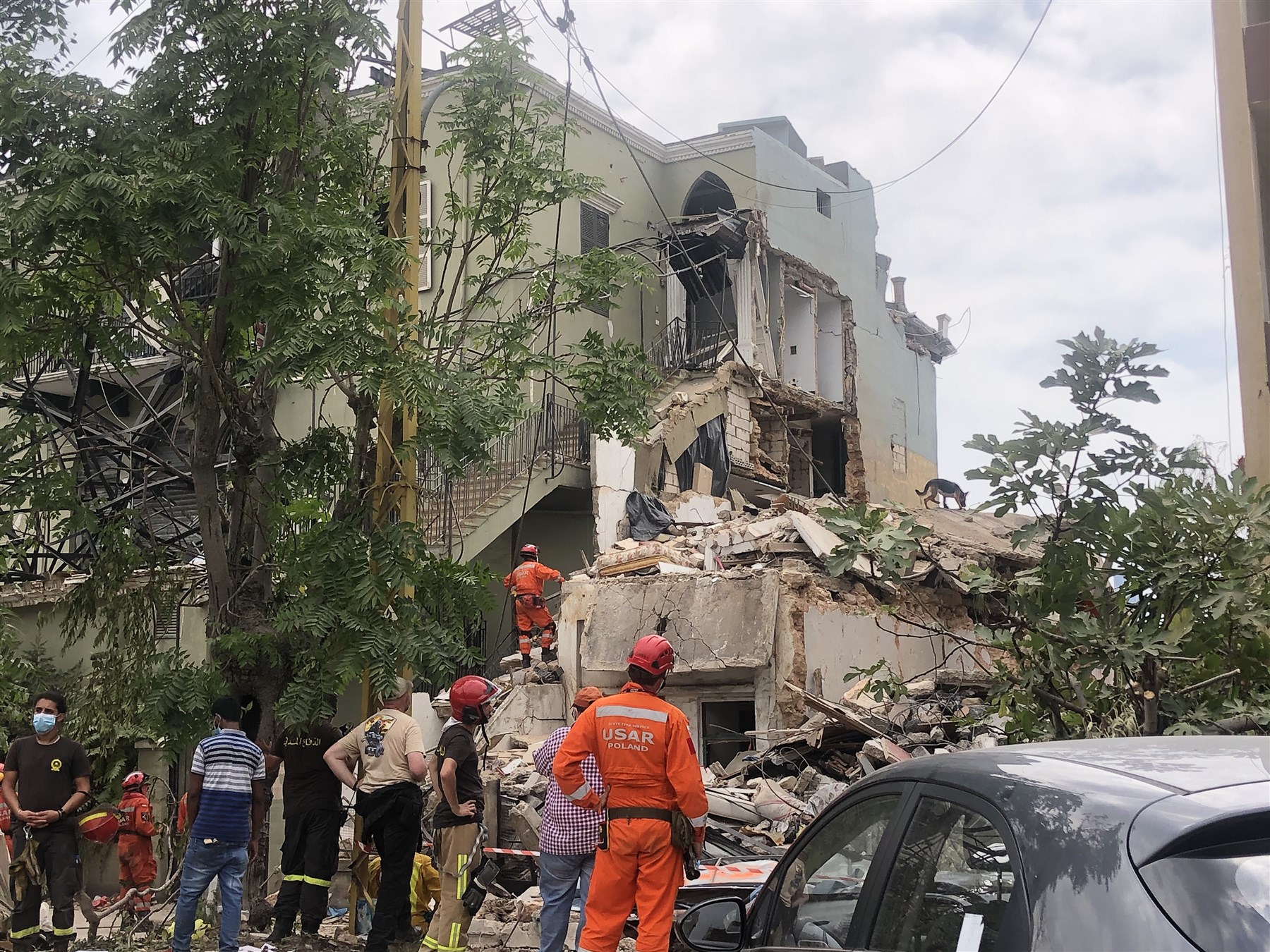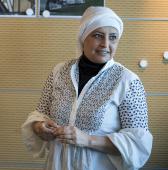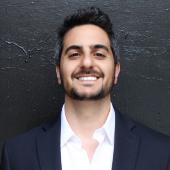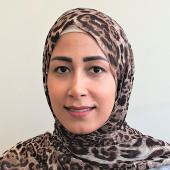(Un)Archiving the City: the Case of Beirut
Project, IF-PRJ-0009

Follow On Grants (2021-2022)
Europe and Middle East
Beirut, Lebanon
Taking Beirut as a case study, the Beirut Investigative Lab addressed two strands of investigation: city as archives and archiving the city, leading to a hypothesis on ‘unarchiving the city.’ Beirut has a contested history of complex challenges marked by war, erasure, sectarian politics, and collective amnesia. This contestation reflects a fear of confronting the past, a conscious neglect of national archives, and the absence of a shared narrative at the national scale. Archival practices are decentralized and mostly associated with private institutions with limited accessibility to the public.
Given this context, the lab interrogated ‘city as archives’ as discussed in the literature, however, through a Lefebvrian lens, and asked the following question: how does the ongoing production of space shape the city as an archive? Then there was a focus on the city as an object of archiving by questioning archival authorship and power as articulated by Derrida and Foucault and adapted to an urban agglomeration. Against the main question of how the city is archived, adopting the Barthan theoretical framework led us to the following question: how do modalities of archiving the city differ, and how do their readings facilitate a plurality of city narratives? When considering the context of conflict, displacement, and collective trauma, these investigations led to a working hypothesis that argues for recovery as a process of unarchiving; a process that disrupts both city as archives and archiving the city. It further argues that a ‘participatory’ recovery process is best positioned to facilitate a more egalitarian model of multiple narratives and future imaginaries.
As part of the Beirut Investigative Lab, the following activities were conducted:
(1) Conducting a thorough literature review on the intersection of city and archives upon which a position was formulated across the two strands: archiving the city and city as archives. Through reflecting on our work on recovery, we positioned the archives in relation to post-disaster recovery in local contexts. This investigation led to our hypothesis on ‘recovery as unarchiving.’
(2) Attending the IF dialogue series, organized and hosted online by University of Exeter in which we presented the following:
“City as Archive | Archiving a City | the Imagined as Unarchiving a City” on 16 October 2020
“Community's Digital Archiving: Imagining the Recovery of Karantina” on 8 March 2022
(3) Curating a closed workshop entitled “(Un)Archiving the City: the Case of Beirut”. The workshop was held on February 8th, 2024, and invited scholars from the Imagining Futures project including: the principal investigator Elena Isayev, co-investigator Kodzo Gavua, and advisor Jala Makhzoumi. Howayda Al-Harithy commenced the workshop by setting the theoretical framing, where she presented the two strands of investigation: ‘city as archives’ and ‘archiving the city’ leading to a hypothesis on ‘recovery as unarchiving’. The workshop included two panels each expanding on these concepts while reflecting on case studies from Beirut. For more information on the workshop, visit this link.
(4) Launching the “Oral Narratives by the Residents of Karantina” platform. The oral narratives project focuses on the second strand of investigation, ‘archiving the city’, using Karantina as a case study. It challenges authoritarian narratives by exploring alternative and inclusive egalitarian methods of archiving its oral history and socio-spatial practices. As it does so, it contributes to “recovery as unarchiving” which investigates how unarchiving during post-disaster recovery produces multiple future imaginaries. For more details on the project, visit this link.
(5) Publishing an article entitled “Recovery as (Un)Archiving: The Case of Karantina following the Beirut Blast” and a short essay entitled “Digital Memory Archiving: the Oral Narratives by the Residents of Karantina” in the Imagining Futures Volumes. The two publications reflect on two projects conducted by the Beirut Urban Lab.
Europe and Middle East
Beirut, Lebanon
Taking Beirut as a case study, the Beirut Investigative Lab addressed two strands of investigation: city as archives and archiving the city, leading to a hypothesis on ‘unarchiving the city.’ Beirut has a contested history of complex challenges marked by war, erasure, sectarian politics, and collective amnesia. This contestation reflects a fear of confronting the past, a conscious neglect of national archives, and the absence of a shared narrative at the national scale. Archival practices are decentralized and mostly associated with private institutions with limited accessibility to the public.
Given this context, the lab interrogated ‘city as archives’ as discussed in the literature, however, through a Lefebvrian lens, and asked the following question: how does the ongoing production of space shape the city as an archive? Then there was a focus on the city as an object of archiving by questioning archival authorship and power as articulated by Derrida and Foucault and adapted to an urban agglomeration. Against the main question of how the city is archived, adopting the Barthan theoretical framework led us to the following question: how do modalities of archiving the city differ, and how do their readings facilitate a plurality of city narratives? When considering the context of conflict, displacement, and collective trauma, these investigations led to a working hypothesis that argues for recovery as a process of unarchiving; a process that disrupts both city as archives and archiving the city. It further argues that a ‘participatory’ recovery process is best positioned to facilitate a more egalitarian model of multiple narratives and future imaginaries.
As part of the Beirut Investigative Lab, the following activities were conducted:
(1) Conducting a thorough literature review on the intersection of city and archives upon which a position was formulated across the two strands: archiving the city and city as archives. Through reflecting on our work on recovery, we positioned the archives in relation to post-disaster recovery in local contexts. This investigation led to our hypothesis on ‘recovery as unarchiving.’
(2) Attending the IF dialogue series, organized and hosted online by University of Exeter in which we presented the following:
“City as Archive | Archiving a City | the Imagined as Unarchiving a City” on 16 October 2020
“Community's Digital Archiving: Imagining the Recovery of Karantina” on 8 March 2022
(3) Curating a closed workshop entitled “(Un)Archiving the City: the Case of Beirut”. The workshop was held on February 8th, 2024, and invited scholars from the Imagining Futures project including: the principal investigator Elena Isayev, co-investigator Kodzo Gavua, and advisor Jala Makhzoumi. Howayda Al-Harithy commenced the workshop by setting the theoretical framing, where she presented the two strands of investigation: ‘city as archives’ and ‘archiving the city’ leading to a hypothesis on ‘recovery as unarchiving’. The workshop included two panels each expanding on these concepts while reflecting on case studies from Beirut. For more information on the workshop, visit this link.
(4) Launching the “Oral Narratives by the Residents of Karantina” platform. The oral narratives project focuses on the second strand of investigation, ‘archiving the city’, using Karantina as a case study. It challenges authoritarian narratives by exploring alternative and inclusive egalitarian methods of archiving its oral history and socio-spatial practices. As it does so, it contributes to “recovery as unarchiving” which investigates how unarchiving during post-disaster recovery produces multiple future imaginaries. For more details on the project, visit this link.
(5) Publishing an article entitled “Recovery as (Un)Archiving: The Case of Karantina following the Beirut Blast” and a short essay entitled “Digital Memory Archiving: the Oral Narratives by the Residents of Karantina” in the Imagining Futures Volumes. The two publications reflect on two projects conducted by the Beirut Urban Lab.
Loading...



